Dear DISC member,
 Welcome to the May edition of the DISC newsletter! This is a time of year when everyone has some extra days off so we hope you are enjoying the (mostly) good weather and relaxing a bit. It is almost time for the DISC Summer School and this year’s topic, Machine Learning for Control, has proven to be very popular. We already have 50+ participants and have decided to create some extra places. If you are interested, don’t wait too long!
Welcome to the May edition of the DISC newsletter! This is a time of year when everyone has some extra days off so we hope you are enjoying the (mostly) good weather and relaxing a bit. It is almost time for the DISC Summer School and this year’s topic, Machine Learning for Control, has proven to be very popular. We already have 50+ participants and have decided to create some extra places. If you are interested, don’t wait too long!
We are also working on the new course program and we will share some information with you further on in the newsletter.
With best regards,
Henk Nijmeijer,
Scientific director
Martha Otte,
DISC secretariat
The course program 2017-2018 is almost finished and we are working on the program for 2018-2019.
It is still a work in progress but we can share some details with you. Simone Baldi (TUD) and Baris Fidan (University of Waterloo) will teach the course “Adaptive Control” in fall 2018.
Stefano Stramigioli (UT) and Arjan van der Schaft (RUG) will give a course on “Energy-based Modeling and Control” in Spring 2019.
We are happy to we will be able to offer once again some of our “evergreens”. Bayu Jayawardhana and Bart Besselink (RUG) will again offer their course “Nonlinear Control Systems”. For a long time Maarten Steinbuch and Gjerrit Meinsma have given the course “Design Methods for Control Systems” but next year Tom Oomen (TUe) and Jan Willem van Wingerden (TUD) will take over from them. They will give the course in spring 2019 and it will be a four week course.
We will be offering more courses but for now this is what we can share with you!
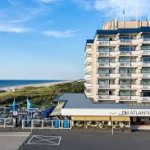
Invitation
Jens Kober, Roland Tóth and Robert Babuska have the pleasure to invite you to participate in the DISC Summer School on “Machine Learning for Control”, which will to take place from June 18-21, 2018, at NH Atlantic, the Hague (Kijkduin), The Netherlands.The invitation is aimed at Phd and research students, staff members, researchers and engineers engaged in the systems and control area. Distinguished speakers will present a series of tutorial lectures.
Scope
Since 1990, DISC has successfully organized yearly summer schools on various topics pertinent to theoretical and practical aspects of systems and control, with an international audience of about 40-60 participants. Together with the graduate course program that is maintained by DISC, the summer schools form part of the educational facilities that DISC offers to PhD students in systems theory and control engineering. The main goal of the summer schools is to familiarize young researchers with recent developments in systems and control as well as in neighboring disciplines, and to provide them with the opportunity to enjoy, in an informal atmosphere, discussions with top researchers in systems and control. The summer schools also provide an opportunity for DISC staff members and others to upgrade their knowledge of specific areas of interest.
Machine Learning for Control
In the past years, machine learning and especially deep learning have seen a dramatic increase of popularity in research, commercial applications, and also in society. Major breakthroughs have been achieved, e.g., in the fields of vision, speech recognition, machine translation, automated trading, recommender systems, data analytics, autonomous driving. Forefront developments already indicate that machine learning will potentially have a drastic impact on control design and system identification and related fields.
The summer school covers the basic as well as more advanced concepts of machine learning techniques commonly used in modelling, control and estimation problems. Topics include Gaussian processes, deep learning, state representation learning, self-supervised learning, and reinforcement learning.
The lectures will include examples of applications, demonstrations and hands on exercises, wherever possible. Participants will have ample opportunity to discuss their own research with the speakers and amongst each other.
Lecturers
The main program will consist of a number of international and national speakers. Keynote lectures will be given by:
and complemented by talks given by DISC lecturers:
Program
The program will become available soon
Credits
PhD students can obtain 1,5 credit for the DISC Summer School
Registration
The registration fee includes:
• Overnight stay on Monday, Tuesday and Wednesday.
• All meals (breakfast/lunch/dinner) are included, from lunch on Monday until lunch on Thursday. There will also be two coffee breaks each day.
• Admission to all sessions
• An USB stick with the lecture notes, so please take your laptop with you.
• Coffee, tea and water during the meeting.
• Internet access on the hotel premises
Accomodation
You will be staying in a double room which you will share with one of the other participants.You can let us know if you would like to share with someone in particular, otherwise we will assign the rooms. There is a limited number of single rooms available at a higher rate.
For more information about the hotel and its facilities, see http://www.nh-hotels.nl/hotel/nh-atlantic-den-haag
Summer School course material
All the course material will be available online, exclusively for the participants of the Summer School. At the beginning of the Summer School you will receive all available slides on USB stick. Please take your laptop with you, internet access is available.
After May 7, 2018 the registration fees are:
950,- Euro for DISC-students and DISC-members
1150,- Euro for non-DISC members
Extra charge for single room: if you would like a single room there will be an extra charge of 140,- Euro added to your registration fee. There is a limited number of single rooms available and they are distributed on a first come, first serve basis.
The school is limited to 50 participants based on a first-come first-serve policy. The registration deadline is June 4, 2018 (Early bird deadline May 7, 2018).
You can register at the following website: http://disc-courseplatform.nl. Non DISC members can also send an email to: secr@disc.tudelft.nl (Please mention your full name and university affiliation including address).
Payments
All payments must be made in EUR, incorporating all charges. The account details are:
• For transfer from a Dutch account:
IBAN: NL65INGB0003127876
Stichting SMBT
Postbus 3351
2601 DJ Delft
• For all other accounts:
Bijlmerdreef 109
NL-1102 BW Amsterdam
BIC: INGBNL 2A
IBAN: NL65INGB0003127876
Account holder: Stichting SMBT
Please indicate your name and mention “Disc Summer School 2018” on the transfer, otherwise your payment cannot be traced to your reservation. Payment must be received before the start of the Summer School.
Unfortunately Credit Card payments cannot be accepted.
Cancellation and refund policy
Cancellations are to be made in writing/email to m.w.otte@tudelft.nl. Cancellations received before May 7, 2018 will be reimbursed in full after deduction of an administrative charge of EUR 35. If you cancel between May 7 and June 1, 2018 you will be required to pay half of the registration fee. For cancellations received after June 1, 2018 no refunds can be made. Substitutions can always be made at no additional charge if the accommodation is still available.
More information
For further information regarding the conference location, registrations or other organizational matters contact the DISC administrative office: Martha Otte (m.w.otte@tudelft.nl)>
For further information regarding the program and scope of the Summer School contact the organizers: Jens Kober (j.kober@tudelft.nl); Roland Tóth (r.toth@tue.nl) and Robert Babuska (r.babuska@tudelft.nl)
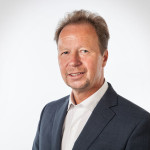
Hans Hellendoorn has been appointed as chair of the new TUD department Cognitive Robotics (CoR) as from April 1, 2018. Hans was chair of DCSC since 2012. We wish him good luck with his new job!
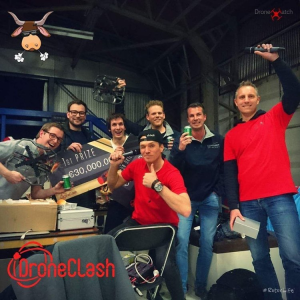 The University of Twente and UT start-up Clear Flight Solutions won the first edition of DroneClash which was organized by the National Police, amongst others. The teams had to come up with anti-drone measures and take out the opponent’s drones in a battle. The team in Twente excelled and went home with the main prize of €30,000.
The University of Twente and UT start-up Clear Flight Solutions won the first edition of DroneClash which was organized by the National Police, amongst others. The teams had to come up with anti-drone measures and take out the opponent’s drones in a battle. The team in Twente excelled and went home with the main prize of €30,000.
The Robotics and Mechatronics Department (RaM) and Clear Flight Solutions (CFS) supported the team with time, resources and materials, since research into anti-drone measures is important to both parties. Both RaM and CFS develop applications with drones, for example for inspection and maintenance purposes.
Read more about the contest and the team here.
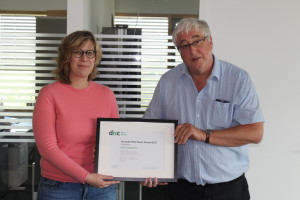
During the Benelux Meeting in March Sofie Haesaert (TU/e) was proclaimed the winner of the DISC Best Thesis Award 2017. Sophie was in the United States at the time, where she works as a postdoc at Caltech, so she could only be present through skype. During a recent visit to the Netherlands Henk Nijmeijer congratulated her in person presented her with the Best Thesis certificate.
The University of Groningen has established the Bernoulli Institute for Mathematics, Computer Science and Artificial Intelligence to combine and expand the unique expertise in these disciplines that is available within its Faculty of Science and Engineering.
Please save the date of our Opening Symposium: Thursday, November 1, 2018 (Room 0151, Bernoulliborg, Zernike Campus). The program will include keynote lectures by renown international
speakers, networking and discussion sessions on the interplay of industry and fundamental research, showcases of interdisciplinary projects, as well as a poster session by young researchers.
A detailed program will be announced shortly.
For more information, please contact the symposium organizers:
Dr. Konstantinos Efstathiou (k.efstathiou@rug.nl),
Dr. Jorge Pérez (j.a.perez@rug.nl),
and Dr. Jennifer Spenader ( j.k.spenader@rug.nl).
Johan Bernoulli Institute (JBI) of the Faculty of Science and Engineering of the University of Groningen offers a scholarship PhD position for a talented and motivated national or international student, starting between September 1st and December 1st 2018. More information available here
EURASIP Summer School on Tensor-Based Signal Processing
August 27-31, 2018
Leuven, Belgium
Higher-order tensor methods are intensively studied in many disciplines nowadays. The developments gradually allow us to move from classical vector and matrix based methods in applied mathematics and mathematical engineering to methods that involve tensors of arbitrary order. This transition is pivotal for signal processing, data analysis and many related fields. An important trend is the joint analysis of multiple data sets by coupled decompositions of several matrices and/or tensors.
Web: https://homes.esat.kuleuven.be/~sistawww/biomed/biotensorssummerschool18/index.php
University of Groningen
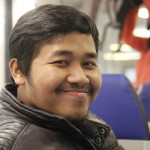 Name: Azka Muji Burohman
Name: Azka Muji Burohman
Starting date: 1 March 2018
Function: PhD
Email: a.m.burohman@rug.nl
Group: System, Control, and Applied Analysis (SCAA) & Discrete Technology and Production Automation (DTPA)
Supervisor: Prof. dr. M.K. (Kanat) Camlibel; Prof. dr. ir. J.M.A. (Jacquelien) Scherpen; Dr. Bart Besselink
Project: Tailor-made model reduction method for integrated energy system
Hi, my name is Azka Muji Burohman from Indonesia. I did my bachelor in Department of Mathematics and my master in Instrumentation and Control, both in Institut Teknologi Bandung, Indonesia. Currently, I am pursuing my PhD degree at The University of Groningen in join group, JBI and ENTEG research institutes. I am joining my research group via Center for Data Science and System Complexity (DSSC) in University of Groningen. I am working on very interesting topic for reducing large-scale networked energy system model which is preserving stability, synchronization and system passivity as well as minimizing the error bound. Beside mathematics, I enjoy playing futsal and climbing mountain in my free time.
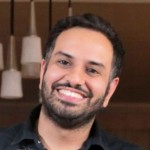 Name: Koorosh Shomalzadeh
Name: Koorosh Shomalzadeh
Starting date: 01-05-2018
Function: PhD
Email: k.shomalzadeh@rug.nl
Group: SCAA, DTPA
Supervisor: Kanat Camlibel, Jacquelien Scherpen
Project: Hierarchical and Distributed Optimal Control of Integrated Energy Systems
Hi! I am Koorosh Shomalzadeh. In 2013, I received my BSc degree in electrical engineering from Iran University of Science and Engineering. I decided to continue my study in the electrical engineering field and I got my MSc degree from K. N. Toosi University of Technology 3 years later in 2017. My M.Sc. thesis subject was “Microgrid Dynamic Equivalencing for Dynamic Rotor Angle Stability Analysis in Main Grid” where I aimed to develop a method for microgrid model reduction which would be suitable for main grid dynamic simulations. I was also a team member in an industrial project in K. N. Toosi University of Technology. We have developed a software for Iran Grid Management Company (IGMC) to identify low frequency oscillation in Iran national grid using synchrophasor data. On may 1st, I started my work as a PhD researcher under supervision of Prof. Camlibel and Prof. Scherpen in JBI and ENTEG research institutes of RUG.
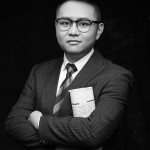 Name: Hongyun Liu
Name: Hongyun Liu
Starting date: 01-03-2018
Function:PhD student
Email: hongyun.liu@rug.nl
Group: Systems, Control and Applied Analysis
Supervisor: Prof. H.L.Trentelman & M.K. Camlibel
Project: Novel Robust Formation Control for Complex Networks
My name is Hongyun Liu, from Shaanxi Province, China. Even though the photo looks very serious, I am really easygoing and open minded. My major for undergraduate and master degree study are all automation. I really love all kinds of music and animation, invitations of concert or comic con are highly welcomed.
Delft University of Technology
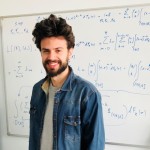 Name: Simone Floreani
Name: Simone Floreani
Starting date: 28-02-2018
Function: PhD
Email: s.floreani@tudelft.nl
Group: DCSC
Supervisor: dr. Sergio Grammatico
Hello everybody, I am Simone Floreani and I am a PhD student under the supervision of Professor Sergio Grammatico. I am an applied mathematician and during my Master thesis I got attracted by the notion of non-cooperative equilibrium in multi-agent systems. I am currently working on uncertain convex programs and will be heading to stochastic variational inequalities and monotone game theory
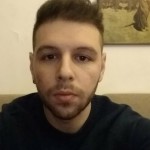 Name: Giannis Delimpaltadakis
Name: Giannis Delimpaltadakis
Starting date: 01-03-2018
Function: PhD
Email: i.delimpaltadakis@tudelft.nl
Group: DCSC
Supervisor: dr. Manuel Mazo
My name is Giannis Delimpaltadakis, and I have recently graduated from the Electrical and Computer Engineering School of the National Technical University of Athens (NTUA), Greece. My diploma thesis was about the control problem of a platoon of car-like vehicles with limited visual feedback, moving in an environment with obstacles. I have been a PhD candidate here at the DCSC since March 1st, under the supervision of Prof. Manuel Mazo Jr. We are currently working on symbolic abstractions of networked control systems implemented in an event-triggered fashion (project SENTIENT).
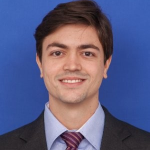 Name: Gabriel Gleizer
Name: Gabriel Gleizer
Starting date: 15-03-2018
Function: PhD
Email: g.dealbuquerquegleizer@tudelft.nl
Group: DCSC
Supervisor: dr. Manuel Mazo
Hi all, my name is Gabriel Gleizer. I have obtained my B.Sc. in Control and Automation Engineering and my M.Sc. in Electrical Engineering, both at the Federal University of Rio de Janeiro, Brazil. I also spent nearly six years as a Research Engineer in the GE Global Research Center in Rio, working on controls, optimization and some analytics. Now I am back to school, where I will pursue my Ph.D. in the topic of Scheduling for Networked Control Systems, under the supervision of Dr. Manuel Mazo.
Eindhoven University of Technology
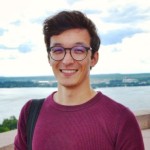 Name: Brandon Caasenbrood
Name: Brandon Caasenbrood
Starting date: 01-02-2018
Function: PhD
Email: b.j.caasenbrood@tue.nl
Group: Dynamics & Control
Supervisor: prof. dr. H. Nijmeijer and dr. A.Y. Pogromskiy
Project: Soft Actuators and Structures
Hi! My name is Brandon Caasenbrood, and I’m a Ph.D. candidate in the Dynamics and Control group at the University of Technology Eindhoven (TU/e). Last year, I received my M.Sc. degree in Mechanical Engineering, where the topic of my graduation project was centered around ‘soft robotics.’ Soft robotics is a new and exciting field of robotics that focuses on constructing robots from soft materials. More specifically, the area draws inspiration from living creatures with their compliant morphology and motion characteristics. In continuation of my graduation project, I worked as a junior researcher at the TU/e.
From the start of September, I will be working in the Wearable Robotics perspective from NWO. This is a collaboration between various partners from academia and industry, where the goal is to develop Exo-Aids for augmenting human capabilities. My contribution is to conduct research on the design of patient-specific soft robot actuators and the development of model-based control algorithms.
University of Groningen
Candidate: Qingkai Yang
Group: ENTEG
Thesis: Constructing tensegrity trameworks and related applications in multi-agent formation control
Promotor: prof.dr.ir. Ming Cao and prof.dr.ir. Jacquelien Scherpen
Date: 25-05-2018
Location: Aula Academiegebouw
Time: 11.00
Candidate: Pooya Monshizadeh
Group: SCAA Groningen
Thesis: Modeling and Control of Power Systems in Microgrids
Promotor: A.J. van der Schaft
Date: September 25
Location: Academic building Groningen
Time: 11.00
Delft University of Technology
Candidate: Yasin Gunes
Group: DCSC
Thesis: A tensor approach to linear parameter varying system identification
Promotor: Prof.dr.ir. J.W. van Wingerden
Date: 08-05-2018
Location: Aula Senaatszaal, Mekelweg 5
Time: 12.30
The next issue of this Newsletter will appear in June 2018.
We encourage the contributors to provide newsworthy information. In principle, we intend to publish any message offered. However, we reserve the right to edit certain parts of a submission.
Please send your contributions to: m.w.otte@tudelft.nl